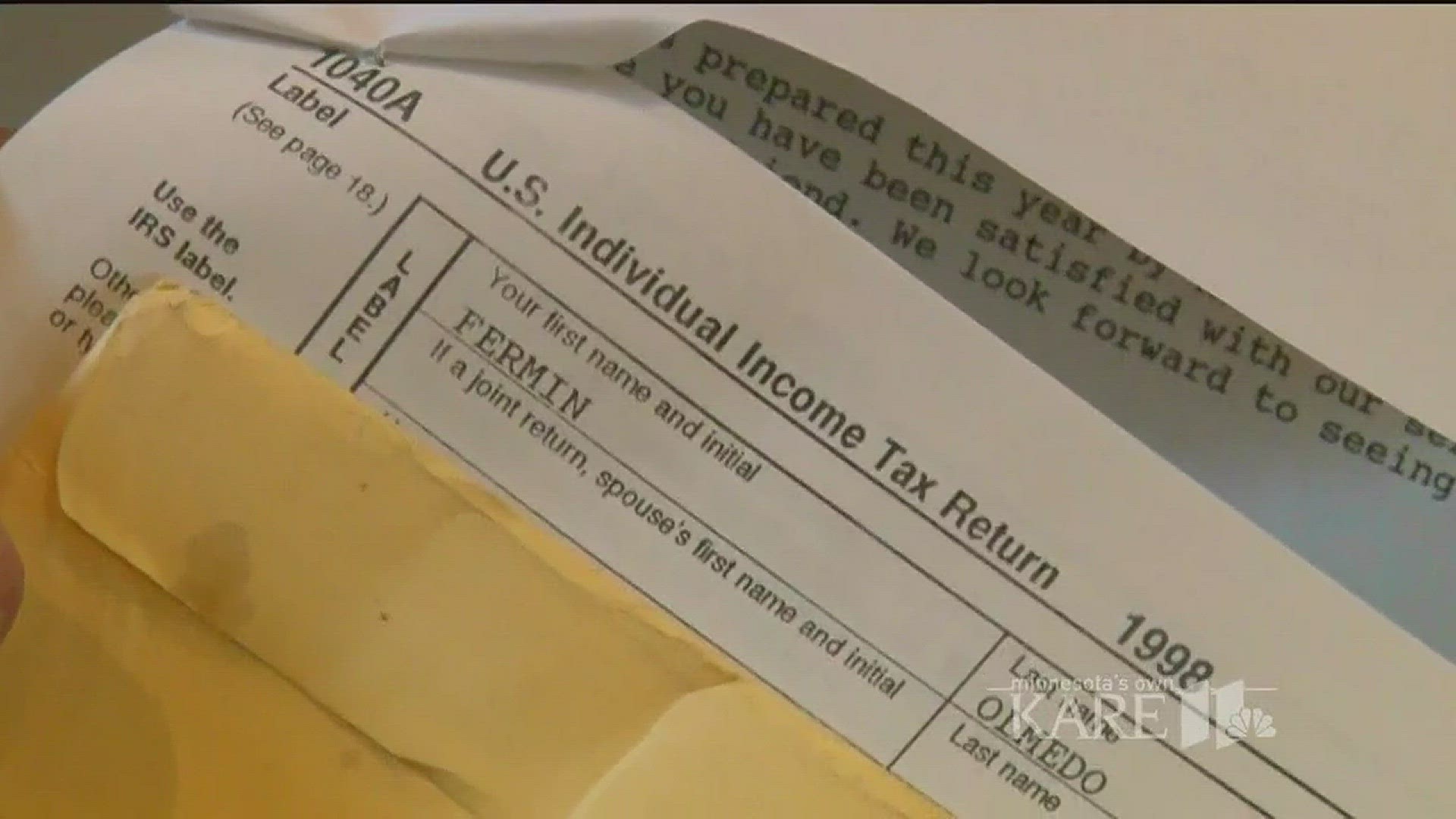GOLDEN VALLEY, Minn. - Most Americans tuck away their tax returns from previous years in drawers or bins, never to see the light of day again. Others even toss them. But Fermin Olmedo of Eagan considers every tax form he’s filed and received from the IRS more valuable than gold.
“For an immigrant person like me, all these papers are like a treasure. You treasure them. You keep them safe all the time. Hoping that one day in the future, they will be of good use for fixing your legal situation in the country,” said Olmedo.
Olmedo was born in the Morelos region of Mexico. Like many undocumented immigrants, he crossed the border, in search of better opportunities.
“More than half my life, I’ve been in this beautiful country,” said Olmedo, who arrived in 1991. “But in the meantime, I’ve been trying to comply with the law,” referring to his consistent tax record.
‘I don’t remember a year that I didn’t pay taxes,” added Olmedo.
Undocumented immigrants like Olmedo file tax returns for two main reasons -- to receive a tax return and to maintain a solid paper trail with the IRS, in hopes that it can one day lead to citizenship.
Even though undocumented immigrants like Olmedo do not have social security numbers, the IRS gives each undocumented immigrant an ITIN (Individual Taxpayer Identification Number), which allows the IRS to process their tax returns.
According to a 2017 report from the Institute on Taxation and Economic Policy (please insert hyperlink: http://www.itep.org/immigration/), undocumented immigrants in Minnesota contribute over $83 million dollars in state and locals taxes.
Through payroll taxes, undocumented immigrants also contribute to Social Security and Medicare, even though they cannot legally collect those benefits.
“That’s one of the prices you have to pay,” said Olmedo.
Olmedo praised his tax record for helping him get approved for a special visa, referred to as a U visa, which is only granted to victims of crimes. But given the changing political climate and the Trump administration’s efforts to detain and deport undocumented immigrants with criminal records, Olmedo said, there is a lot of fear in his community.
“It’s very frightening. People are afraid of the future and what’s going to happen,” said Olmedo. “I’ve been living here for 25 years, more than half my life. I love this country and I would do anything for this country.”

